Nurturing New Visionaries
NUS College Dean Professor Simon Chesterman and his Vice Deans share their plans and aspirations for the college.
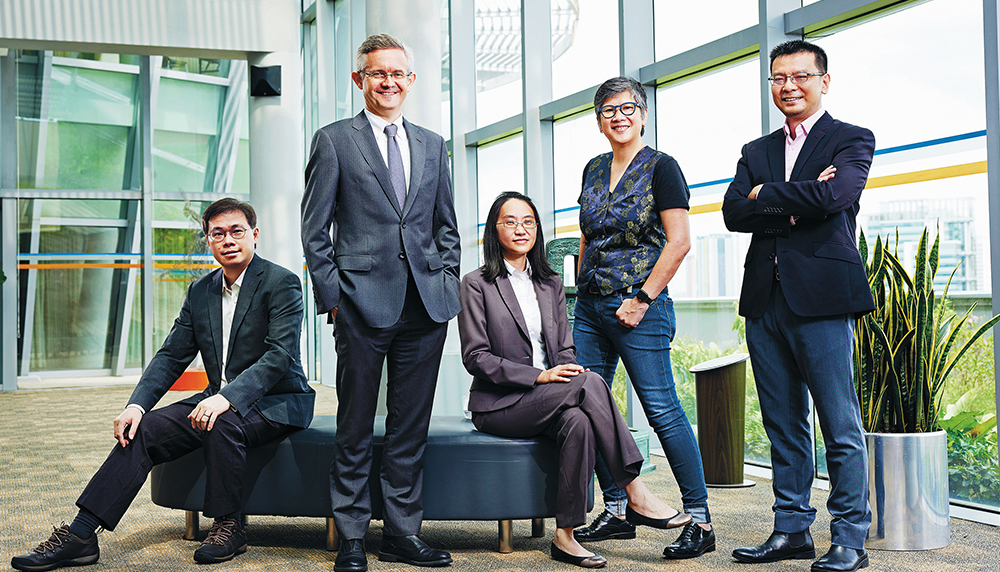
Consider it the best of both worlds. When the new NUS College (NUSC) admits its first intake of up to 400 students for the academic year of 2022/2023, it will be the result of a partnership between the University Scholars Programme (USP), known for its innovative spirit; and Yale-NUS College (YNC), the founding liberal arts college in Singapore. Students from disciplines across NUS can benefit from their combined heritage and more at NUSC. Graduates will earn a degree from their home college, faculty or school and also the NUSC certificate.
At NUSC, students will get to learn across boundaries and collaborate with a diverse community of local and international students from 50 majors. They will also benefit from small-group seminar-style classes and a compulsory residential experience of at least two years in University Town, which will provide a living and learning environment for them to express, explore and challenge themselves. Students will also be mentored by an academic team of local and international talents who are visionaries in their respective fields.
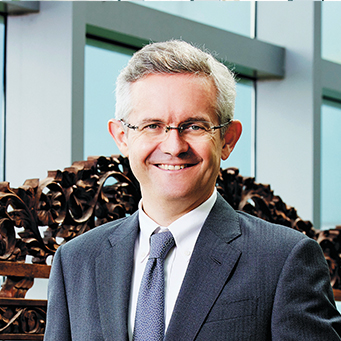
Professor Simon Chesterman
Dean, NUSC
An advocate of interdisciplinary education, Prof Chesterman has been with NUS Faculty of Law since 2007 and its Dean since 2012. He is an authority on international law, technology policy and higher education. He is also the author/editor of 21 books, including four young adult fiction novels.
How will NUSC differ from USP and YNC?
There’s much in our curriculum that draws on the experience of USP and YNC — and also elements that are completely new. We have designed common curricular experiences for students early in their degrees. These common modules draw heavily on precursors at YNC and USP, emphasising the liberal arts tradition of providing thought-provoking, small-group discussions. But we also have a new Global Pathways programme and Global Experience modules, which leverage heavily on the global networks of the highly sought-after NUS Overseas Colleges programme. Another signature programme is the Impact Experience Project that will integrate experiential learning, interdisciplinarity and impact on the wider community.
What learning experience can students expect from NUSC?
By integrating NUSC into the degree programmes of almost all of the undergraduate offerings at NUS, we’re hoping to complement and enhance those pathways. There has been a push towards interdisciplinarity and breadth across all of NUS, with the creation of the College of Humanities and Sciences, the College of Design and Engineering, and so on. NUSC will take that a couple of steps further, with historians and scientists, lawyers and business students, studying and living cheek-by-jowl, learning with and learning from one another.
NUSC places a lot of emphasis on the interdisciplinary curriculum. Why is this important?
In a world being reshaped by artificial intelligence, our graduates need qualities that machines don’t yet have — as well as the ability to understand and work with those machines. As Pablo Picasso once said, computers are useless: all they can give you are answers. The speed with which the world is changing, and the complexity of problems like climate change and global inequality, require anyone who would solve those problems to see things from multiple perspectives — and be able to work with people from other disciplines and other cultures. So naturally we hope our graduates will be snapped up by employers who want their creativity, initiative and drive. But we’re also hoping that many NUSC alumni will chart their own paths and start their own companies or organisations.
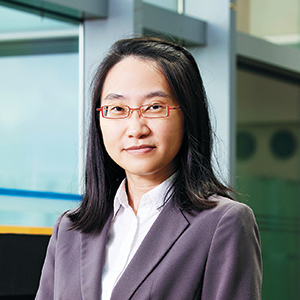
Associate Professor Quek Su Ying
Vice Dean (Outreach)
Assoc Prof Quek hails from the Department of Physics at NUS Faculty of Science, where she serves as an Assistant Dean (Special Duties).
What can you tell us about your new appointment?
I will be in charge of admissions and outreach to students, alumni and donors, as well as public relations. I hope to bring to this role an open mind and a big heart to build bridges and a common vision with schools, students, alumni and other stakeholders. NUSC is also putting in place a holistic admissions system. I’d like to bring into this role the humility to listen to different perspectives and experiences.
What are you most excited about for the new college?
As the first honours college in Singapore, we will be a trailblazer for higher education that empowers our students to develop their full potential. We provide an environment for students to solve problems with interdisciplinary approaches, thinking out of the box. I’m excited to bring unique educational opportunities to people from all walks of life, including the socially disadvantaged.
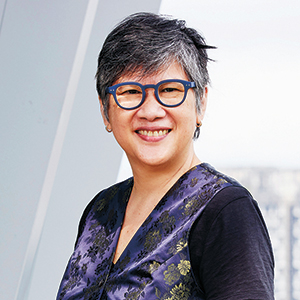
Associate Professor Eleanor Wong (Law '85)
Vice Dean (Residential Programmes & Enrichment)
At NUS Faculty of Law, the well-known poet and playwright is Vice Dean (Student Life and Global Relations), Director of the Centre for Pro Bono and Clinical Legal Education, and Coordinator of the International Moot Programme.
As a Vice Dean at the new NUSC, what aspects will you be in charge of?
I will direct the NUSC residential programme and oversee aspects of residential living to facilitate an enriching experience.
What are you most looking forward to at NUSC?
Let me speak principally about student life. I am excited by the possibilities. I see the students in this new community co-creating their own distinctive culture: one that is inspired and influenced by their precursors but uniquely NUSC. I served on the planning group for Student and Residential Life and learnt from the USP and YNC student representatives that both USP and YNC strongly value the principles of respect for students’ identities, their independence and diverse interests. I have no doubt that these qualities will carry through to NUSC.
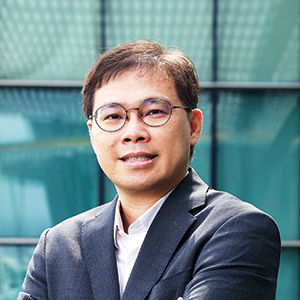
Associate Professor Loy Hui Chieh (Arts and Social Sciences ’97)
Vice Dean (Academic Affairs)
Assoc Prof Loy is a member of the Philosophy Department at the Faculty of Arts and Social Sciences where he is also Vice Dean (External Relations and Student Life). His academic interests include ancient Greek philosophy, early modern and contemporary ethics, and political philosophy.
What do you hope to bring to this new role?
My team will oversee all the traditional academic matters in NUSC. This means identifying and appointing suitable instructors with a passion for education, overseeing course design and implementation, and collecting and analysing feedback data to support improvement.
What are you most excited about for the new college?
To make sure that the education students receive at NUSC is exciting and rigorous in ways that complement and enhance their main degrees in NUS. To be a community of passionate educators dedicated to the mission of the college, and to nurture curious and critical-minded problem-solvers and positive changemakers.
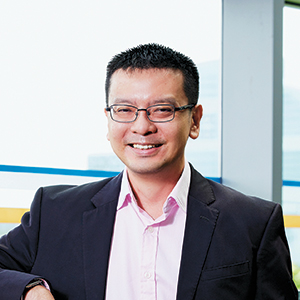
Associate Professor Daniel Goh (Arts and Social Sciences ’97)
Vice Dean (Special Programmes) and Associate Provost (Undergraduate Education)
At NUS Faculty of Arts and Social Sciences, Assoc Prof Goh is a sociologist who also helms the integrated social science module, Understanding Social Complexity, at NUS College of Humanities and Sciences.
What aspects will you be in charge of in your two new roles?
I will be in charge of the Global Experience modules (GEx), the Impact Experience Projects (IEx) and Growth Mentoring. GEx offers specially-curated learning immersion trips to international hubs. IEx gets students to engage community partners to work on social impact projects to make the world a better place. I hope to build a team of dedicated lecturers and administrators to transform students to become critical changemakers and global citizens with deep values of integrity and humility.
What are your hopes and vision for the new NUSC?
To use NUSC as a platform to bring the energies of passionate lecturers, grounded administrators, inspired alumni, curious students and valued partners into an explosive mix that will set us all off into growth trajectories. NUSC will be a launchpad for students to head out beyond Singapore to transform themselves and the world. I expect to be transformed too.
![]()